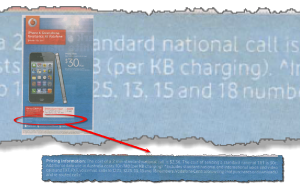 To really understand the TCP Code, and especially ACMA’s attitude to it, you need to appreciate its statutory basis and the processes that resulted in the Code. So TCPCode.com.au has released Cracking the TCP Code, a podcast that explains it all and overviews the Code.
To really understand the TCP Code, and especially ACMA’s attitude to it, you need to appreciate its statutory basis and the processes that resulted in the Code. So TCPCode.com.au has released Cracking the TCP Code, a podcast that explains it all and overviews the Code.
Together with a companion resources book, the podcast gives lawyers, telco directors and regulatory officers (and anyone who’s really interested in the Code) the background they need to make sense of it. And it’s free.









